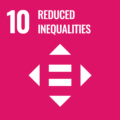Research4Life partners commit to free and low cost access and training through 2025
Washington D.C., USA, July 24, 2018: PRESS RELEASE
The Research4Life partners announced today that they have agreed to extend their partnership through 2025. Research4Life (www.research4life.org) currently provides over 8,500 institutions in more than 100 developing countries with free or low cost access to peer-reviewed eResources from the world’s leading scholarly publishers. The renewed commitment will ensure that the nearly 85,000 peer reviewed academic journals, books and databases from some 200 scholarly publishers available through the public-private Research4life partnership will continue to reach research communities in low- and middle-income countries.
Daniel M. Dollar, Chair of the Research4Life Executive Committee and Associate University Librarian for Collections, Preservation, and Digital Scholarship at Yale University Library, said, “The partnership’s overwhelming support to extend the Research4Life mandate to 2025 recognizes the programme’s success in reducing the knowledge gap between high, middle, and low income countries through capacity building and affordable access to scholarly, professional and research information. Research4Life is a shining example of public and private organizations coming together with a shared vision of the power of information to improve people’s lives.”
One of the beneficiaries of Research4life, Dr. Alice Matimba, a researcher and senior lecturer at the Department of Clinical Pharmacology at the University of Zimbabwe, transformed the treatment offered to patients diagnosed with diabetic retinopathy and other eye complications by successfully advocating for a policy of investment in the advanced technology and services needed to tackle the burden of diabetes in Zimbabwe. She notes, “Thanks to Research4Life for providing digital access to evidence-based scientific information, we were finally capable of doing a review of the literature which confirmed our hypothesis. It enabled flexibility of research ideas which would lead to solutions. We were able to find the best literature suited for our needs.”
[…]- Read the full press release “Research4Life partners commit to free and low cost access and training through 2025” on the Research4Life website


















